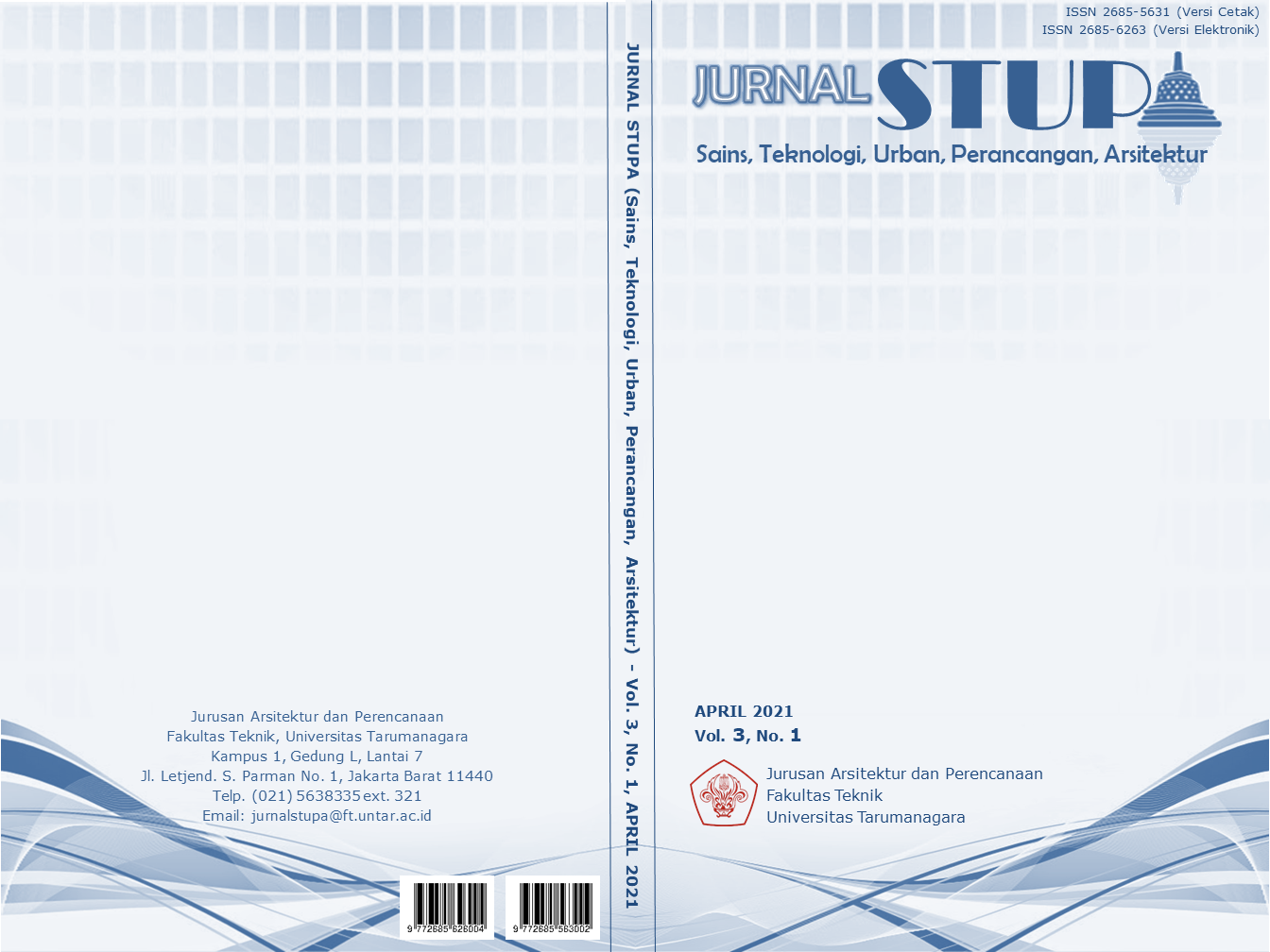REKREASI SEBAGAI PUSAT REHABILITASI GEN Z
Main Article Content
Abstract
Generation Z has a significant influence on technological developments, productivity, and social interactions. In the Covid-19 phenomenon that occurred in 2020, it caused humans to become aware of the importance of face-to-face social interactions. Therefore, the provision of social facilities that can restore social interaction between humans is needed. The purpose of this research is to restore socialization between people, especially in the z generation after the pandemic, to provide spatial rehabilitation through social space in the form of entertainment in stages, to provide facilities that are able to meet the social needs of the community, and to create activity programs that are able to meet the socialization needs of the community while improving the quality of life local community. Reported by Maslow's Hierarchy of Needs, there are five stages of human needs, namely self-actualization, respect, compassion, security, and psychological needs. Which is where generation Z is needed to make ends meet. Therefore, it is necessary to have housing that requires a technology concept that can be used more effectively in interacting better than face-to-face. The method used is a communication approach which is used through observation and data collection from the internet and correlation to find a relationship between two quantitative variables. The results obtained are to create a public space where generation z can take advantage of technology and architecture that support the interaction process.
Keywords: Recovery; Rehabilitation; Entertainment; Fundamental.
Abstrak
Generasi Z memiliki pengaruh yang signifikan terhadap perkembangan teknologi, produktivitas, dan interaksi sosial. Dalam fenomena Covid – 19 yang terjadi di tahun 2020 ini menyebabkan manusia sadar akan seberapa pentingnya interaksi sosial tatap muka. Oleh karena itu, penyediaan fasilitas sosial yang dapat mengembalikan interaksi sosial antar manusia sangat dibutuhkan. Tujuan penelitian ini diantaranya adalah untuk mengembalikan interaksi sosial antar manusia terutama pada Generasi Z pasca pandemi, memberikan rehabilitasi ruang melalui ruang sosial berupa hiburan secara bertahap, menghadirkan fasilitas yang mampu memenuhi kebutuhan sosial masyarakat, dan menciptakan program kegiatan yang mampu memenuhi kebutuhan sosialisasi masyarakat sekaligus meningkatkan kualitas hidup masyarakat setempat. Dilansir Maslow Hierarchy of Needs ada lima tahap kebutuhan manusia yaitu aktualisasi diri, menghargai, kasih sayang, keamanan, dan kebutuhan psikologis. Yang dimana Generasi Z sangat dibutuhkan dalam memenuhi kebutuhan. Oleh karena itu diperlukan hunian yang memerlukan konsep teknologi yang dapat digunakan lebih efektif dalam berinteraksi secara lebih baik dibanding dengan tatap muka secara langsung. Metode yang digunakan adalah dengan pendekatan komunikasi yang digunakan melalui pengamatan dan pengumpulan data dari internet serta korelasi untuk mencari hubungan antara dua variabel yang bersifat kuantitatif. Hasil yang didapatkan adalah dengan membuat public space dimana para Generasi Z dapat memanfaatkan teknologi serta arsitektur yang mendukung dalam proses interaksi.
Article Details
Section
References
Byrne, J., & Follow. Insight Into The 7 Stages A Mental Health Patient Experiences. LinkedIn. https://www.linkedin.com/pulse/20140730204236-80639995-insight-into-the-7-stages-a-mental-health-patient-experiences/.
Herman, J. L. (2015). Trauma and Recovery: The Aftermath of Violence--From Domestic Abuse to Political Terror (1R ed.). Basic Books.
Riso, D. R., & Hudson, R. (1999). The Wisdom of the Enneagram: The Complete Guide to Psychological and Spiritual Growth for the Nine Personality Types (Illustrated ed.). Bantam.
Roddick, C. B. M. L. (2015, August 3). Stages of Trauma Recovery: What It Means to Be a ‘Survivor.’ GoodTherapy.Org Therapy Blog. https://www.goodtherapy.org/blog/stages-of-trauma-recovery-what-it-means-to-be-a-survivor-0803155
WHO. (2013). Mental health. https://www.who.int/mental_health/management/info_sheet.pdf
Wardynski, D. J. (2019, November 7). What are the effects of technology on human interaction? https://www.brainspire.com/blog/what-are-the-effects-of-technology-on-human-interaction.

